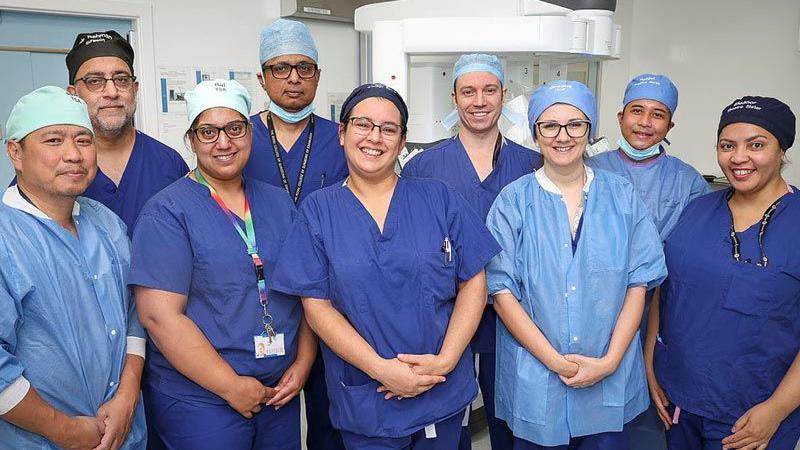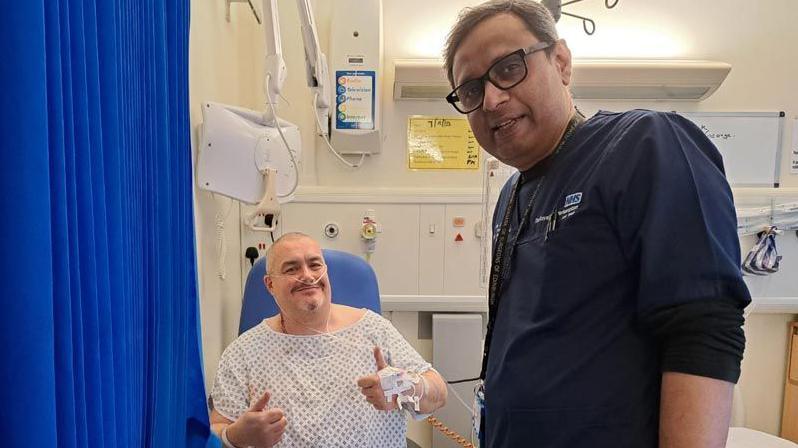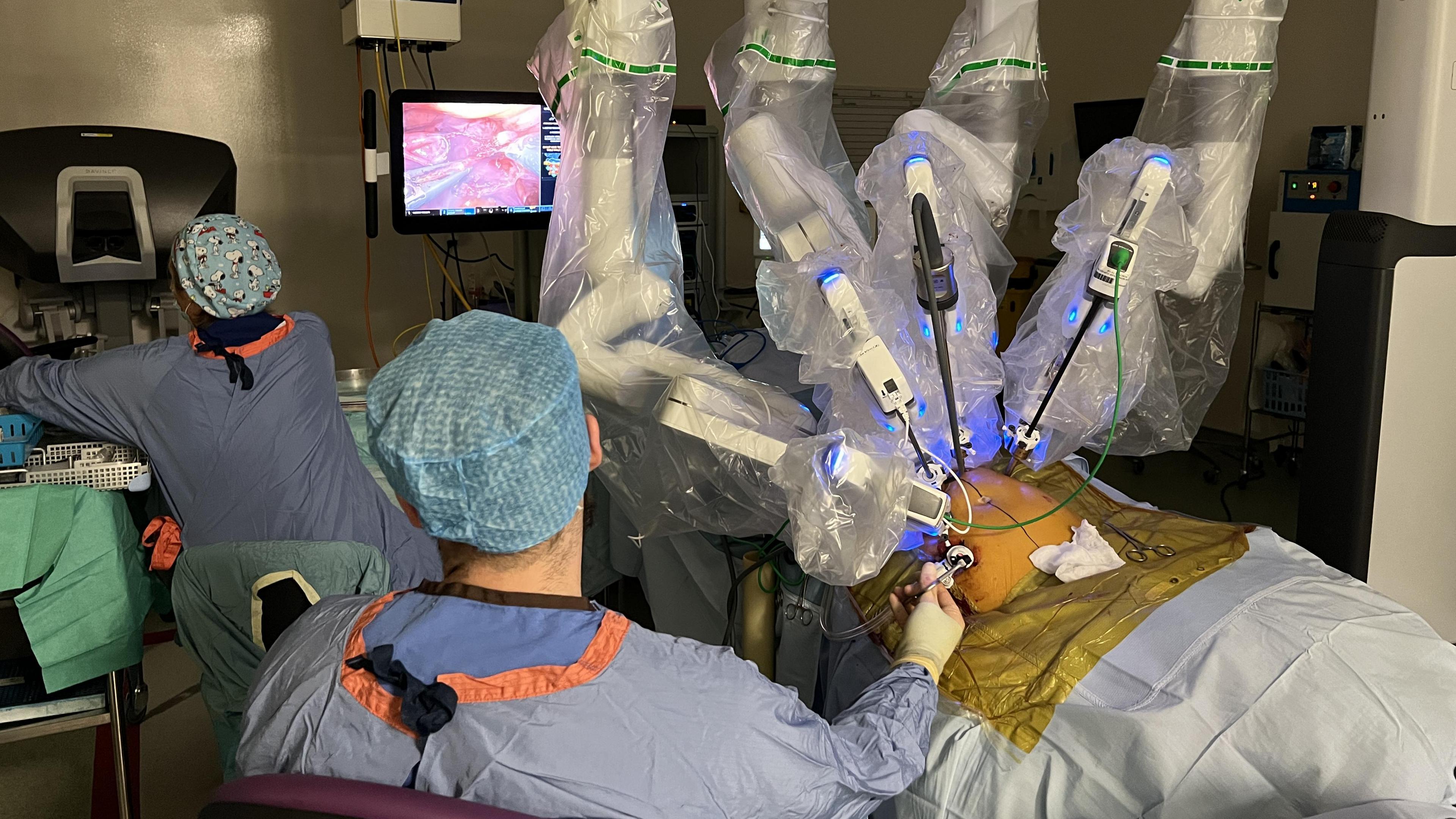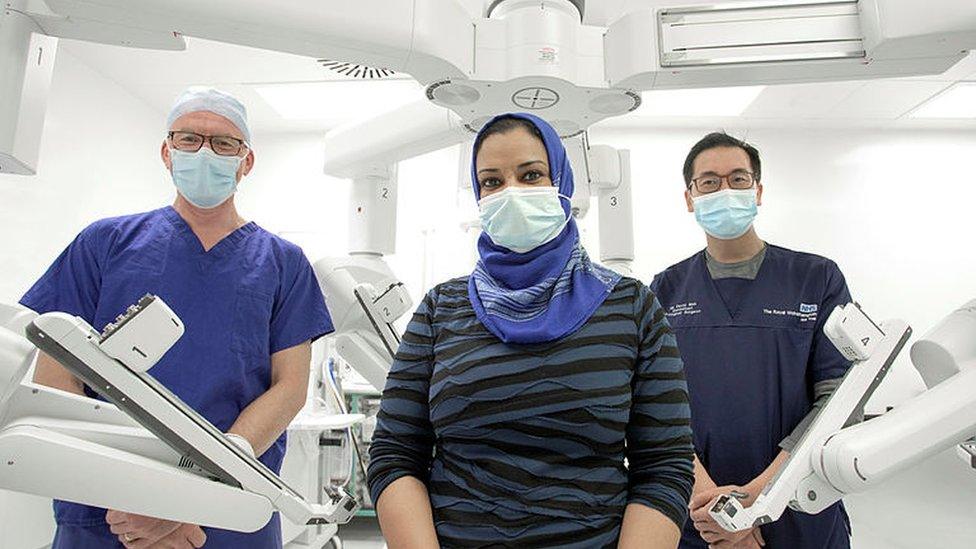Robots to remove types of throat cancer

The robot-assisted team for ear, nose and throat (ENT) at New Cross Hospital
- Published
A surgical robot is being used to remove types of throat cancers at a city hospital.
New Cross in Wolverhampton operates the same Da Vinci robot that has been used in urology and colorectal cases since 2011, but with different arm attachments.
Royal Wolverhampton NHS Trust (RWT) said it hoped about 20 patients from Wolverhampton, South Staffordshire and Walsall would benefit from the surgery every year.
Such patients would spend less time in theatres, would recover faster, and need less anaesthetic, the trust added.
Before the robot, the lower jaw had to be divided during surgery. The new approach, however, allows the procedure to be carried out via the mouth.
“The patient is able to eat and drink almost straight away, and when you reduce the anaesthesia time, the risks are lower so it’s better for the patient," consultant surgeon Syed Ahsan said.

Frank George was pleased to be part of the surgery's development, he said
Frank George, 56, from Walsall, underwent a four-hour robotic operation for throat cancer after discovering a pea sized lump while shaving.
The father-of-two was discharged from New Cross Hospital four days after his surgery, which removed his tonsils and a tumour from his neck.
“I’m only too happy to have been a major part of this development," he said.
'Long-term side effects reduced'
RWT's divisional medical director, John Murphy, said he was proud robotic operations were being offered in the fight against the disease.
"We’ve gone from cases that might have taken 12 hours and two weeks in hospital to two or three hours with one or two days in hospital," he explained.
Patients with cancers that were small in volume and localised would be suitable for the surgery.
Removing the tumour would reduce long-term side effects by avoiding the use of chemotherapy, the trust added.
Follow BBC West Midlands on Facebook, external, X, external and Instagram, external. Send your story ideas to: newsonline.westmidlands@bbc.co.uk, external
Related topics
Related Internet Links
- Published5 July 2023

- Published7 June 2022
